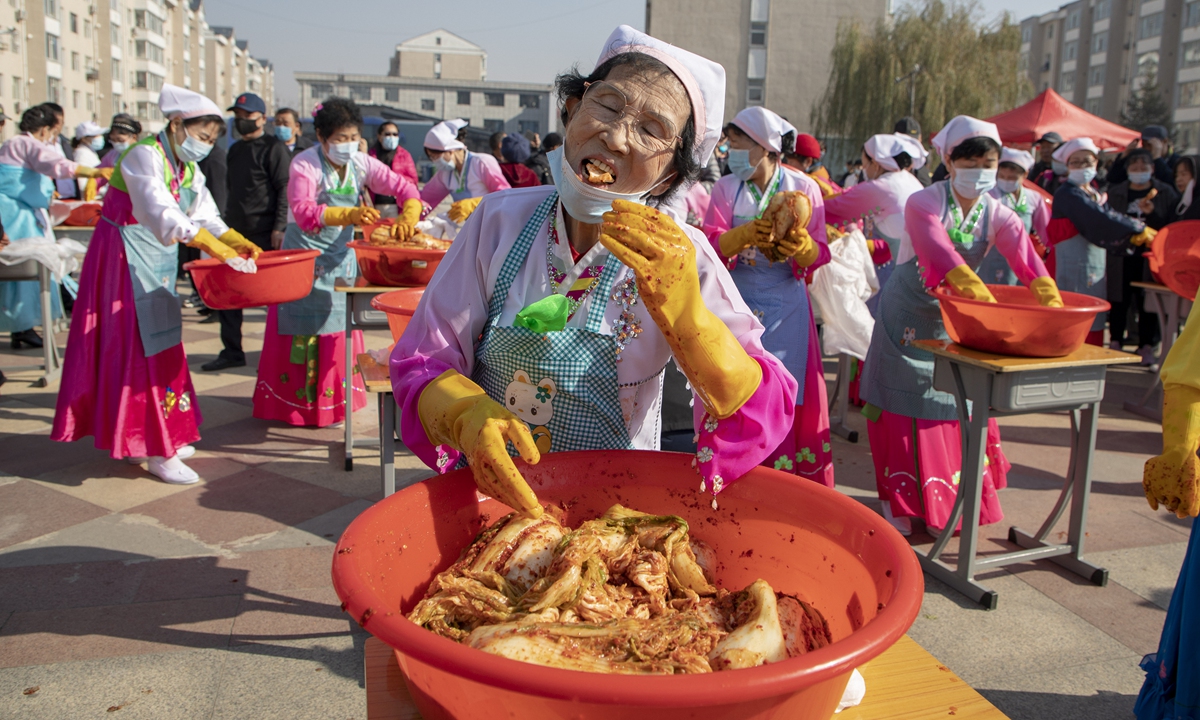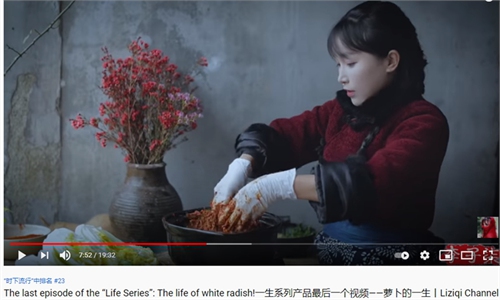Paocai or kimchi? They share similarities but differ in ingredients, flavors and methods: Chinese FM

An elderly woman from China's Korean ethnic minority group tastes some hand-made paocai in Northeast China's Jilin Province on October 26. Top: A demonstration of Sichuan-style paocai dishes on November 16 in Southwest China's Sichuan Province Photos: IC
Kimchi, also called paocai in China, is a pickled and fermented dish not exclusively owned by certain countries and regions, a spokesperson for the Chinese Foreign Ministry said, calling on friendly and unbiased exchanges on food.
China supports friendly exchanges on academic issues related to "kimchi" but any prejudice should not be brought into the exchanges, Chinese Foreign Ministry Spokesperson Hua Chunying said on Wednesday's press briefing.
The comment came after netizens from China and South Korea have been engaged in debates over where "kimchi" came from.
In early December, a China-led application campaign to the International Organization for Standardization for paocai, the Chinese version of pickled vegetables, was criticized by some South Korean netizens. Despite the organization specifically noting that "the document does not apply to kimchi," confusion over the name struck the nerves of South Korean netizens, who accused China of "cultural theft" and lodged a protest.
A more recent spat surrounded a video by Chinese food vlogger Li Ziqi who showcased how to make Chinese paocai. However, some South Korean viewers claimed Li was "stealing" their dish and tradition, while Chinese netizens responded with criticism and mockery.
The debate continued after South Korean mukbang star known as Hamzy was boycotted by Chinese netizens for labeling the paocai made by Li Ziqi as South Korean kimchi in a video on Friday. Hamzy's video was followed by many comments from South Korean users insulting China.
Hamzy's company released a statement late Tuesday saying they have ended their contract with her as the company firmly opposes any insulting behavior to China and will not allow any insulting attitude or remark by its bloggers.
Hamzy on Tuesday released a statement, saying that she hoped the statement could clear up some misunderstandings, however, her statement was poorly accepted by Chinese netizens. "If I have to say kimchi comes from China in order to hold some activities in China, then I would stop my activities. It is also unnecessary for Chinese people to call Chinese food as South Korean food in order to hold activities in South Korea," she said in the statement.
"I'm not an expert on food. In my opinion, kimchi, also called paocai in China, is a pickled fermented dish that does not exclusively exist in certain countries and regions. They share some similarities, but have different ingredients, flavors and preparation methods," Chinese Foreign Ministry spokesperson Hua Chunying said in a press conference when asked about the debate.
"We support friendly exchanges on academic issues related to the food. However, prejudice should not be brought into the exchanges, which may lead to confrontation and affect feelings," she said.
About 90 percent of the kimchi imported by South Korea comes from China, with a small town in East China's Shandong Province leading the country's export, accounting for 80 percent of the total, media reported.
Global Times


